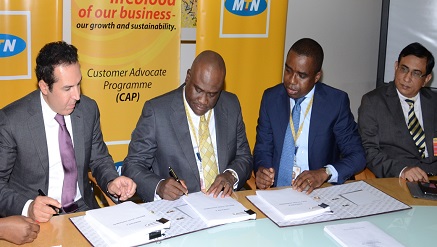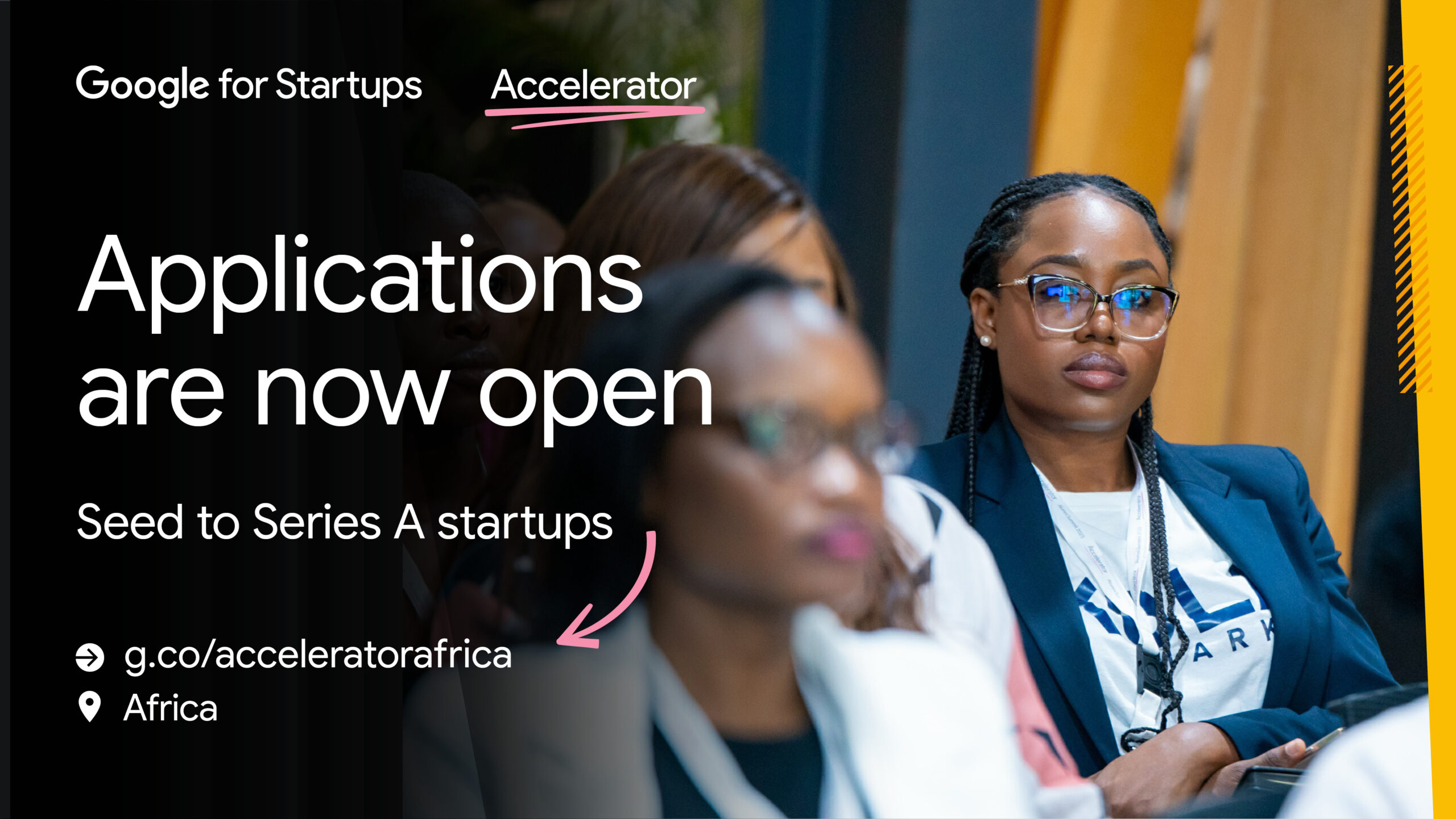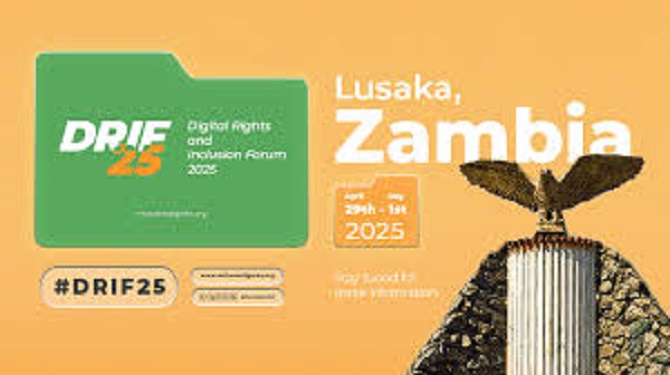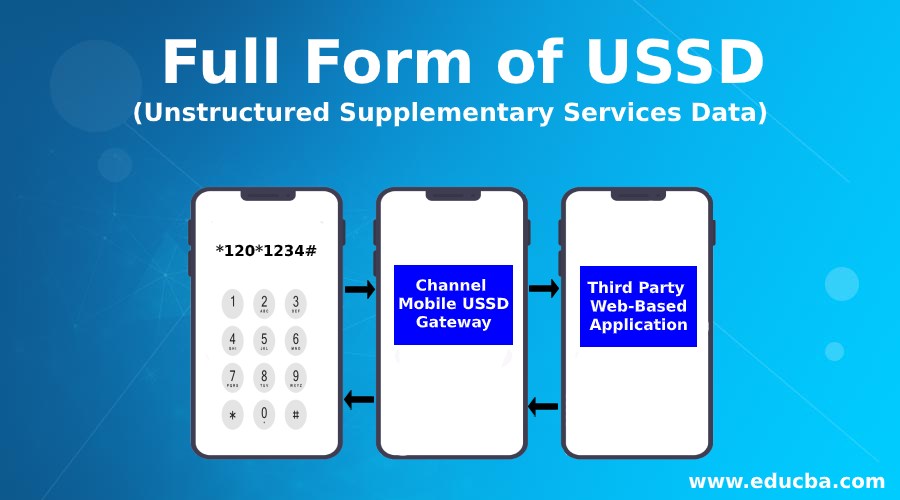Telecom
MTN Nigeria Signs Tower Sale Agreement with IHS

MTN Nigeria has signed an agreement with IHS Holdings for the transfer of its towers business, comprising 9 151 mobile network towers, to the latter, in the West African country.
MTN – Africa’s largest mobile operator said yesterday the transaction is expected to reduce MTN Nigeria’s operating costs, drive network efficiencies and further expand MTN’s voice and data capacity.
While the value of the deal has not been revealed, Reuters quotes a source familiar with the transactions as saying the sale was worth around $1.8 billion.
In terms of the deal, the towers would be transferred to a new company, which will be owned jointly by MTN and IHS, with IHS having full operational control of the underlying business. The transaction essentially doubles the size of the IHS business.
The new towers company will market independent infrastructure sharing services to other mobile operators and Internet service providers (ISPs) in Nigeria.
The transaction – currently subject to regulatory approval – is expected to be finalized in the fourth quarter of this year.
“We are delighted to have entered into a further transfer transaction with IHS, in our largest African market. IHS’ deep knowledge and considerable experience in the sector will help drive efficiencies and enhance our network uptime, allowing us to concentrate on further raising our own service levels, improving the customer experience and ensuring we remain the number one operator in Nigeria,” said Sifiso Dabengwa, group president and CEO of the MTN Group.
As part of the MTN deal, the new towers company has committed more than $500 million of additional investment, over four years, into tower upgrades and a maintenance programme to improve quality of service and enhance the customer experience on the MTN Nigeria network.
In addition, further investments will be made into IHS’ centralised network operations centre in Nigeria, to optimise operations and increase IHS’ network uptimes of over 99%.
There will also be sustained investments in energy-efficiency through the deployment of advanced generators, batteries and alternative power solutions to reduce diesel consumption. IHS anticipates creating a considerable number of technical and engineering direct and indirect employment opportunities to be sourced locally in Nigeria.
Michael Ikpoki, MTN Nigeria CEO, said that the separation of MTN Nigeria’s mobile network towers and operation of the underlying towers business by IHS reflects a major part of the company’s strategy to optimise network quality and technological assets.
“Indeed, the trends and realities in our industry reveal the increased role of cost-efficiency and optimisation of assets in guiding business decisions in order to remain competitive.
“We will continue to embrace strategies that enhance our services to our customers while ensuring our long-term business continuity, without compromising best practice.”
Issam Darwish, IHS Holdings CEO commented, “This is a significant and transformational agreement for IHS that doubles the size of our business and confirms our position as the leading mobile infrastructure company in Africa.
“It gives me great pleasure to be agreeing this deal with MTN, a partner we have worked with for more than 10 years and with whom we have an excellent relationship. I am confident that MTN’s customers and management will benefit almost immediately from IHS’ focus on quality of service, innovative tower management and sustainable energy approach.”
The deal is important for MTN and is a natural progression of how telecoms operators are starting to do business in developing markets, says Ovum analyst Richard Hurst. However, he warns this type of deal does take some of the competitive advantage away from operators.
“Selling towers to IHS means you are essentially giving away part of your business, and your competitors – who are doing the same – end up with the same coverage as you. This means these operators have to find other ways of competing against each other, such as cost-efficiency or additional services.”
According to Nigeria’s telecoms regulator, MTN Nigeria has a 46% share of the country’s mobile subscribers, compared to India’s Bharti Airtel with 20%, Globacom with 19% and Etisalat Nigeria with 15%.
Telecom
Google Launches 2025 AI Startups Accelerator Program for African Innovators

Google has opened applications for the 2025 Google for Startups Accelerator Africa program, a three-month initiative designed to support early-stage startups using artificial intelligence to address Africa’s most pressing challenges.

Across the continent, startups are demonstrating how local innovation can solve deeply rooted problems. In West Africa, Crop2Cash – an agritech platform and alumni of the program – is using AI to digitally onboard smallholder farmers, build their financial identities, and provide them with access to credit, traceable payments, and productivity tools.
Through these efforts, Crop2Cash is improving agricultural outcomes and unlocking economic opportunity for farmers who have long been excluded from formal systems—illustrating the kind of impact that’s possible when African startups receive the support they need to scale.
The Accelerator is open to Seed to Series A startups based in Africa that are building AI-first solutions. Startups must have a live product, at least one founder of African descent, and a clear vision for responsible AI innovation. Selected participants will receive:
Dedicated technical mentorship from Google and industry experts
Up to $350,000 in Google Cloud credits
Access to a global network of investors, partners, and collaborators
Workshops focused on technology, product strategy, people leadership, and AI implementation
AI’s potential to accelerate Africa’s development is real, and Google is investing in ensuring that African startups lead that charge. According to McKinsey, AI could add $1.3 trillion to Africa’s economy by 2030, but only if bold innovation is supported at the grassroots.
“Startups are Africa’s problem solvers. With the right resources, they can scale their impact far beyond local communities,” said Folarin Aiyegbusi, Head of Startup Ecosystem, Africa at Google.
“This program reflects our belief that AI can be transformative when shaped by those who understand the context deeply.”
Since 2018, the program has supported 140 startups from 17 African countries. These alumni have raised more than $300 million in funding and created over 3,000 jobs. Many are now regional and global leaders in their categories.
Applications for the 2025 cohort are now open. Startups interested in participating can apply at: https://startup.google.com/programs/accelerator/africa
For further information and updates, visit the Google Africa Blog or follow @GoogleAfrica on social media.
Telecom
DRIF25 Brings Together 1,000 Delegates in Lusaka

The Digital Rights and Inclusion Forum (DRIF25) is all set for its 12th edition, taking place from April 29th to May 1st, 2025, at the Mulungushi International Conference Centre in Lusaka, Zambia.

Over 1,000 delegates from 65 countries are expected to attend this highly anticipated event, with registration officially closed on April 13th, 2025.
The forum will feature esteemed speakers, including Zambia’s Minister of Technology and Science, Hon. Felix Mutati; Advocate Pansy Tlakula, Chairperson of the Information Regulator of South Africa; and ‘Gbenga Sesan, Executive Director at Paradigm Initiative.
Other notable contributors include Usama Khilji, Executive Director of Bolo Bhi, and Beatrice Mutali, the UN Resident Coordinator for Zambia.
Organized by Paradigm Initiative (PIN) with support from local and international partners such as Bloggers of Zambia, Internet Society Zambia, and the Zambia Ministry of Technology and Science, DRIF25 will focus on the theme: Promoting Digital Ubuntu in Approaches to Technology.
Discussions will tackle critical issues such as Artificial Intelligence, Data Protection, Digital Inclusion, and Human Rights.
The three-day forum will include 122 sessions, ranging from workshops and panel discussions to tech demos and exhibitions.
These were selected from a record-breaking 345 proposals, continuing the forum’s growth over recent years. Sponsors like Ford Foundation, Meta, Google, and Wikimedia Foundation play a crucial role in making the event possible.
PIN is set to unveil key publications during the event, including the 2024 Digital Rights and Inclusion in Africa Report – Londa and the organization’s book, The PIN Story: Work in Progress, chronicling its journey from a small cybercafe in Lagos, Nigeria, to a leading pan-African digital rights organization.
As one of the continent’s premier platforms for advancing digital rights and inclusion, DRIF25 promises to build on the success of previous editions, driving dialogue and collaboration among diverse stakeholders.
Telecom
Banks, Telcos Mull New Billing Plans for USSD Airtime Payments

Telecom customers will have to pay for the use of Unstructured Supplementary Service Data (USSD) by having their airtime deducted, according to an information obtained by the Guardian.

According to reports, discussions to implement an end-user billing system between telecom providers and deposit money banks (DMBs) are presently in advanced stages.
A system that charges the client directly for utilizing the USSD service instead of the service provider is known as end-user billing.
This implies that, independent of any further fees the bank may impose, the customer’s mobile account (airtime or direct billing) is deducted for the USSD session.
This is a shift from the conventional corporate billing approach where banks were invoiced for USSD usage.
Gbenga Adebayo, chairman, Association of Licensed Telecommunications Operators of Nigeria (ALTON), said to The Guardian that conversations are underway, and the mechanisms are being fine-tuned to suit subscribers, telcos and DMBs.
r billing, which the banks have been supporting for a while, may help prevent accumulated debts, as seen by the current crisis between the banks and telecom providers, according to Adebayo.
Therefore, we have started talking about switching to end-user paying without causing customers’ services to stop working.
The banks now charge you and debit your account when you make USSD (Debit alert for the transfer). Banks won’t debit you again after the talks are over; instead, your airtime will be used immediately. The funds will be deducted from your airtime rather than your account by the banks.
“The discussion has begun; we will work with the banks to agree on a migration plan. The banks have long been demanding a solution to the USSD debt problem, and this will be it. In order to prevent consumers from being charged for services they did not receive, the parties must nevertheless agree that systems must be updated and operations must be transparent.
“The discussion is underway,” he said.
Recall that on September 16, 2019, the Bank Chiefs wrote to ALTON on behalf of the Body of Banks’ Chief Executive Officers (BOBCEO) proposing a “orderly implementation” of end-user charging for bank clients that would “align with the standard practice for USSD billing.”
The bank executives expressed disapproval of splitting the profits from USSD transactions with the telcos in the note to ALTON.
They stated that the service providers, who supply the platform for the USSD service, had suggested deducting N4.50k per 20 seconds from the fees that clients pay the banks. The banks objected, claiming that it would increase the cost by 45% immediately.
However, the dynamics, especially the underlying technology, made the concept unpopular with the telcos at the time.
Instead, the carriers had demanded corporate billing. According to the telecoms, the banks declined to attend a roundtable in 2020 to address the issue and put a definitive stop to it.
As a result, the USSD obligations that are presently being recovered from were greatly exacerbated by the matter’s failure to be resolved five years ago. Since March 16, 2021, subscribers have been charged N6.98K for each USSD transaction.
The authorities instructed DMBs and MNOs to agree on payment options, either a lump amount or instalments, by January 2, 2025, in a circular jointly issued by the Central Bank of Nigeria (CBN) and NCC.
They stated that the payments must be finished by July 2, 2025, if they are chosen.
It is required that 60% of all pre-API bills be paid in full and as a final settlement. By January 2, 2025, a concerned DMB and MNO must agree on payment options (lump amount or instalments).
To be clear, if a DMB suggests instalment payment, it must be based on equal monthly instalments, and the money must be paid by July 2 at the latest.
Just to be clear, if a DMB suggests instalment payment, it must be based on equal monthly instalments, and the money must be paid by July 2 at the latest.
In accordance with past decisions made by the CBN and the NCC, DMBs are required to settle eighty-five percent (85%) of all unpaid invoices between the relevant DMB and MNO (also known as post-API debts) by December 31, 2024, following the implementation of Application Programming Interfaces (API) in February 2022.
Additionally, within a month of the invoice being served, 85% of all subsequent invoices must be paid off.
The NCC will initiate the required regulatory procedures to switch back to End-User Billing (EUB), provided that the directions in Paragraphs 1 and 2 above are satisfactorily implemented and that the agreement between DMBs and MNOs for the switch to EUB is furthered.
Only MNOs and DMBs that fully adhere to the aforementioned paragraphs 1 and 2 will be permitted to switch to EUB. In due order, the CBN and the NCC will offer guidelines on public education initiatives related to the changeover. MNOs are required to implement the “10-second rule” for USSD invoicing until the transitional procedures in paragraph 3 above are finalized.
Thus, any USSD session that lasts less than 10 seconds is not eligible for billing. “DMBs with prepaid billing options have the opportunity to migrate to EUB, subject to the execution of the required regulatory processes,” the authorities added.

 General News3 days ago
General News3 days agoWorld Bank Announces $800m Support for Nigeria’s CCT Initiative

 Telecom2 days ago
Telecom2 days agoBanks, Telcos Mull New Billing Plans for USSD Airtime Payments

 E-Financial3 days ago
E-Financial3 days agoFour Red Flags Nigerians Ignored until CBEX Crashed- DUBAWA

 Telecom3 days ago
Telecom3 days agoHow Starlink Took over Africa’s Largest Internet Market
- General News3 days ago
MIT MBA Students Explore Digital Innovation at MTN Nigeria

 E-Business2 days ago
E-Business2 days agoNIPOST in Intensive Care, Needs Reforms Need to – Kekemeke

 General News3 days ago
General News3 days agoNITDA, SecDojo Forge Partnership to Strengthen Nigeria’s Cybersecurity Resilience

 E-Financial2 days ago
E-Financial2 days agoLeadway Partners Firm to Launch Retail Insurance Product for Women























